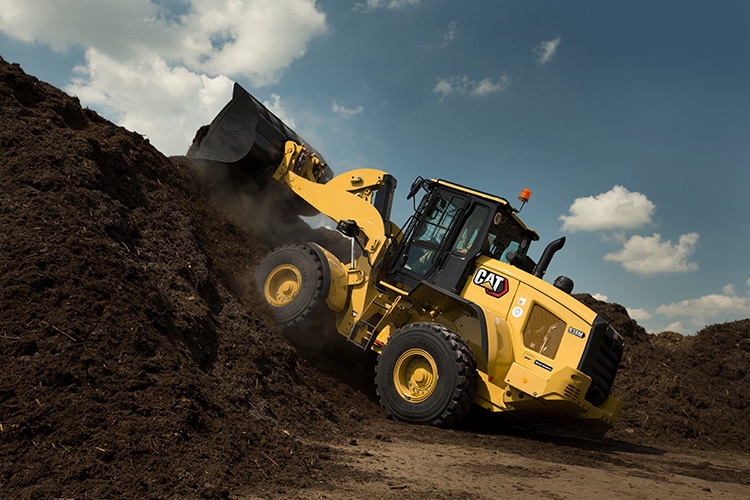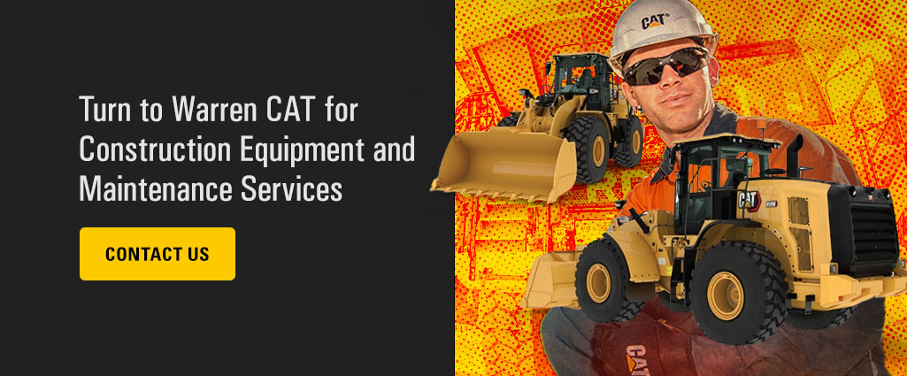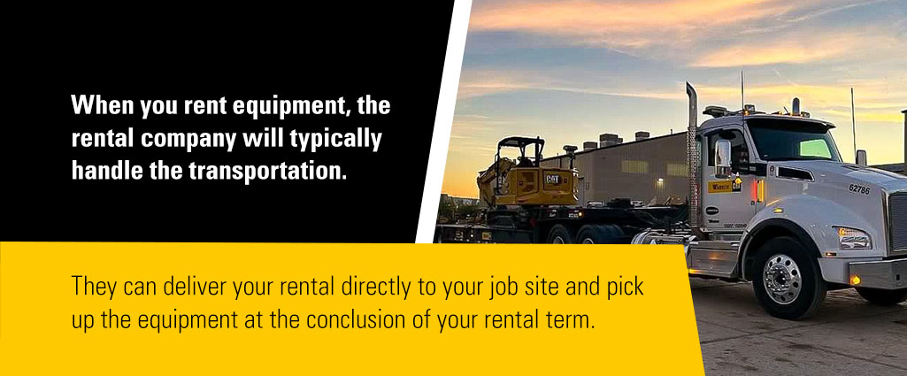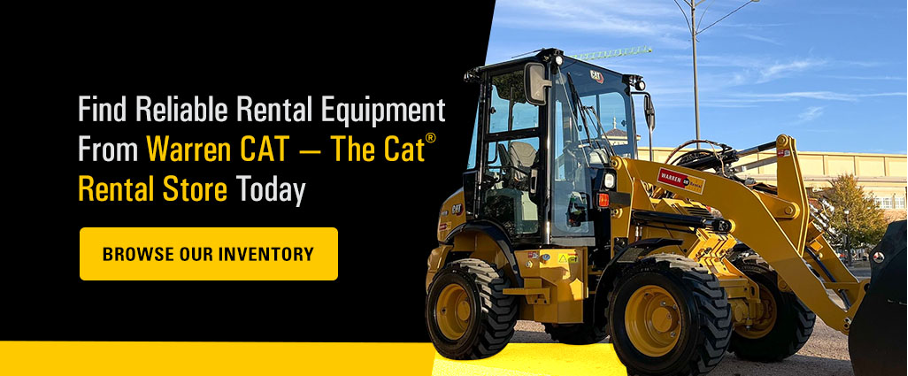Construction downtime describes a period when construction operations are inactive. This duration can span anywhere from a few hours to several weeks, depending on the cause.
Downtime can occur for multiple reasons, such as equipment breakdowns, routine maintenance and weather. Planned downtime can be beneficial to avoid unplanned downtime through measures like preventative equipment maintenance, but unplanned downtime can set your project back, costing your business time and money.
The right strategies and techniques can prevent unanticipated downtime from impacting your operations. In this post, you’ll learn how to reduce downtime and increase productivity in your construction projects.
6 Common Causes of Construction Downtime and How to Avoid Them
Several factors can lead to construction equipment downtime or downtime that impacts other parts of your project.
1. Shipping Delays
When you have parts and materials coming to your job site from various locations, shipping delays are always a potential issue. Whether you have to deal with a supply chain disruption that pushes your delivery date back by weeks or forget to order an item halfway through the project, shipments can lead to unexpected downtime.
Though some shipping issues are unavoidable, you can take steps to prevent them as much as possible:
- Plan carefully. Devoting extra time to the project planning stage helps ensure you don’t overlook any critical steps, tools or materials.
- Request expedited shipping. If you’re in a bind for equipment parts or attachments, see if there’s an option to prioritize shipping and get your items sooner.
- Rent equipment. Renting can be an efficient solution to get the equipment you need, especially if you only need these parts temporarily.
2. Weather
Certain weather conditions can prevent construction crews from completing projects on time.
- Rain: Rain can create slipping hazards for equipment and operators. It can also cause sites to become unnavigable or cause wood to warp, crack and swell.
- Wind: High winds can pose risks while operating equipment, especially in elevated platforms like boom lifts, scissor lifts and vertical personnel lifts. Extreme winds can also damage unfinished projects, especially when combined with rain. If strong enough, these winds can also strain and break equipment.
- Lightning: Lightning is a serious occupational hazard for construction crews, as metal construction equipment is conductive. Lightning can strike exposed personnel or damage equipment, endangering any operators present.
- Dryness and heat: Severe heat can overwhelm equipment, impeding its performance or causing it to break down. Extremely dry conditions can increase the amount of dust in the air, which can clog and jam sensitive components.
During the initial project planning phase, check the forecast for inclement conditions that could affect completion. Try to avoid scheduling tasks when these conditions are expected to occur.
3. Operator Incidents
In the private sector, the construction industry reported the highest number of fatal work injuries in 2022 due to construction equipment accidents like:
- Falling from equipment, ladders and elevated work surfaces
- Electrocution from equipment coming into contact with power lines
- Getting caught between or in equipment
- Getting struck or hit by a piece of equipment
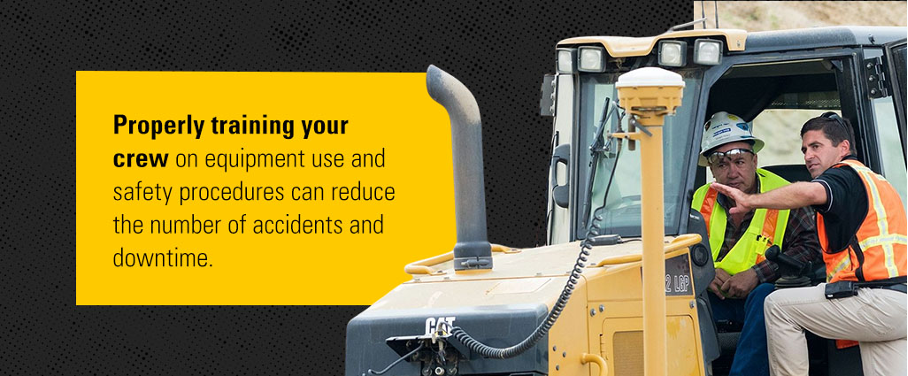
Properly training your crew on equipment use and safety procedures can reduce the number of accidents and downtime. They should also use the appropriate safety gear and personal protective equipment, including:
- Fall harnesses
- Hardhats or helmets
- Safety glasses
- Protective footwear
- Respirators
- Earmuffs or plugs
- Gloves and hand protection
4. Power Outages
A power outage can impede construction workers’ ability to complete projects on time. Thankfully, various solutions can help crews continue work as usual when the power goes out:
- Power generators: A generator can power equipment like drills, saws, compressors and pumps. It can also charge battery packs for electric equipment.
- Light towers: Light towers illuminate construction sites, providing optimal visibility for workers. They make it easier for crews to see what they’re doing, lowering the risk of injuries and improving safety. Light towers are portable and generate their own power, making them assets in nighttime operations, blackouts and power outages.
5. Management and Communication Challenges
Construction sites need effective planning, teamwork, communication and leadership for successful project completion. A lack preparation can cause a lull in your operations, making it far more difficult to complete tasks on time.
The best way to combat this problem is to hire strong managers and supervisors for your construction team. All team members should remain in the loop about their roles and responsibilities, as well as project schedules, timelines and deadlines.
Project managers should regularly check in at every phase of the project and make themselves available to answer any questions crew members might have. Additionally, they should ensure each piece of equipment and every operator is in the right place at the right time. That way, you can ensure projects run smoothly and stay on track.
6. Equipment Issues
Sudden equipment breakdowns are another typical cause of construction downtime. The reality is that construction machinery is prone to wear and tear. Ongoing preventative maintenance can help your machines perform their best, keep minor equipment issues from turning into major ones and extend the life span of your equipment.
Keep a preventative maintenance schedule for each machine in your fleet. The right maintenance schedule will depend on numerous factors, such as the manufacturer’s guidelines and how often the machine is used. By scheduling preventative equipment maintenance with a knowledgeable service provider, you can ensure your fleet receives the regular care and attention it requires.
Additionally, using the incorrect equipment for the job can waste time, reduce productivity and present hazards for operators. It’s smart to work with experienced dealers who can connect you with the right equipment to ensure you use the ideal solutions for the job.
Turn to Warren CAT for Construction Equipment and Maintenance Services
By investing in the proper machinery and keeping up with routine maintenance, you can minimize unwanted construction equipment downtime and the costs that come with it. Luckily, Warren CAT can help in both of these areas.
As an authorized Cat® dealer, we can work with you to find construction equipment that suits your projects, needs and budget. We have various solutions for rent and purchase, including dump trucks, bulldozers, skid steers and attachments. Our technicians also perform routine maintenance and emergency repairs, keeping your Cat equipment reliable and efficient.
Whether you’re seeking construction equipment or preventative maintenance services, Warren CAT is here for you. Let us know how we can assist you by sending us a message or calling 866-292-7736 today.
